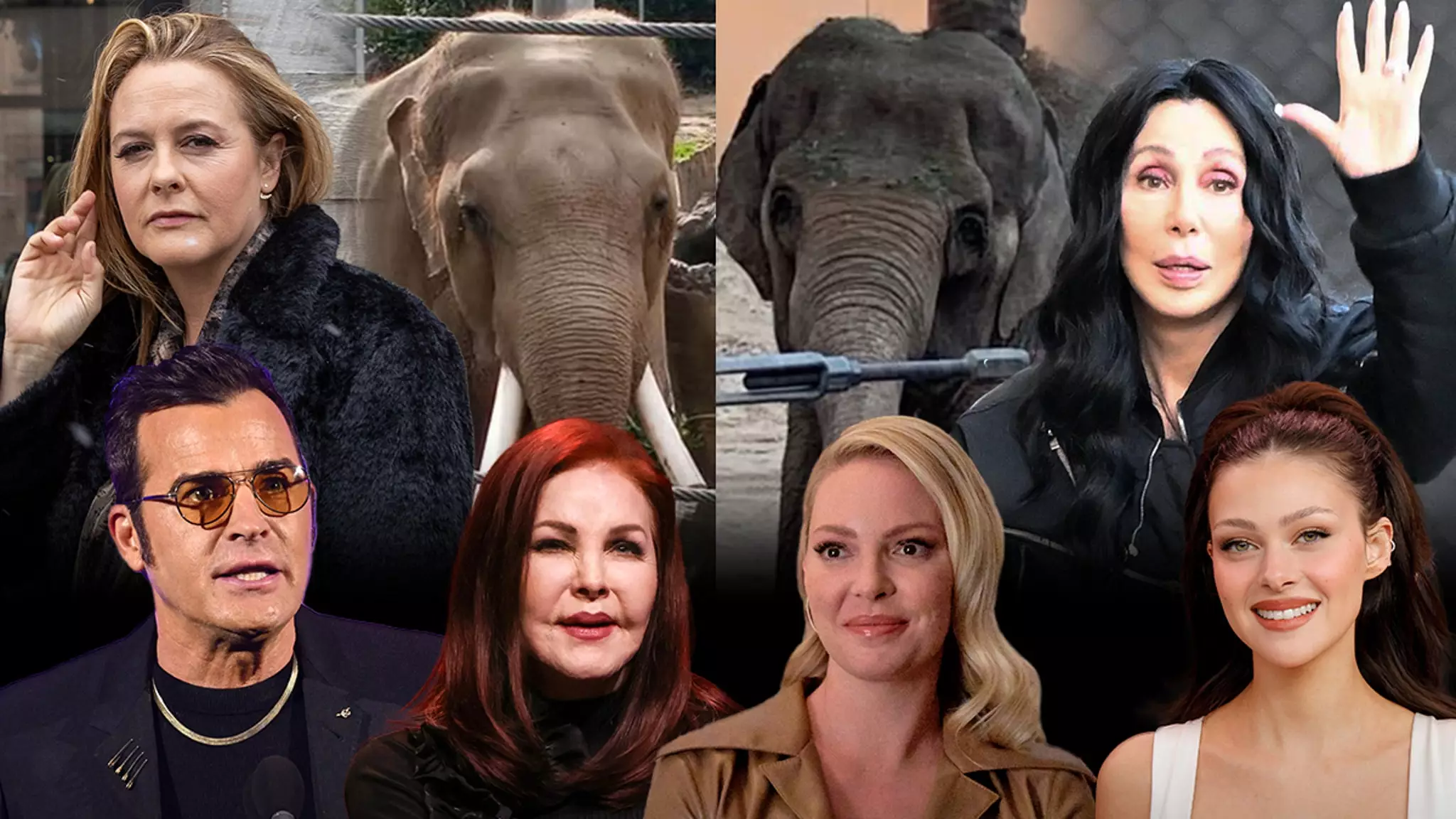Recently, Cher, the iconic pop diva, has once again leveraged her star power to advocate for the welfare of two cherished elephants, Tina and Billy, residing in the Los Angeles Zoo. Alongside a coalition of celebrities—including Alicia Silverstone, Diane Warren, and Justin Theroux—Cher signed a poignant letter addressed to Mayor Karen Bass, urging the urgent reevaluation of plans that would see these beloved creatures transferred to the Tulsa Zoo in Oklahoma. The move has sparked intense debate about the ethics of zoos and the humane treatment of animals, especially those like Tina and Billy, who have spent decades imprisoned within the confines of enclosures that fail to meet their complex needs.
The Case Against Traditional Zoos
Critics argue that traditional zoos cannot adequately provide for the social and physical requirements of elephants. The letter highlights disturbing symptoms of “zoochosis,” often seen in captive animals; behaviors such as swaying and head bobbing indicate severe psychological distress—a reality that underlines the urgent need for reform. Cher and her allies underscore that while the Tulsa Zoo may offer slightly more space, it still falls short of the safe haven that a proper elephant sanctuary can provide. The argument is compelling: do we continue to adhere to outdated notions of animal captivity, or do we allow these majestic creatures the dignity and autonomy they deserve in their twilight years?
Financial Implications of Animal Welfare
Adding another layer to this already complex situation is the financial aspect: the proposed transfer is priced at a staggering $44,000. Given Mayor Bass’s recent budget cuts, which are affecting public services and jobs, many question the justifiability of investing taxpayer money into a transfer that may prolong the elephants’ struggles rather than alleviate them. It’s a glaring example of misplaced priorities where profit margins overshadow ethical considerations in animal husbandry. Cher’s letter points out the absurdity of this move, calling for action to ensure that public funds are directed toward programs that genuinely foster the welfare of all Angelenos—human and animal alike.
A Call to Action
Cher’s advocacy highlights a critical moral obligation: the need for society to reflect on its treatment of non-human beings. The push for sanctuary stems from a broader conversation around empathy and responsible stewardship for animals that do not have a voice. With the transfer looming, Cher’s involvement has resonated with many, igniting a flame of public interest and concern that could serve as a turning point in the way we view and treat captive wildlife.
As this situation unfolds, the world watches—and not just for the fate of Tina and Billy, but as a reaction to the ethics of our cultural institutions. Cher’s dedication shines a light on the possibility of change, inspiring us to challenge the systemic norms governing our treatment of animals and advocate for an era where all creatures can reclaim their innate freedom and dignity.

